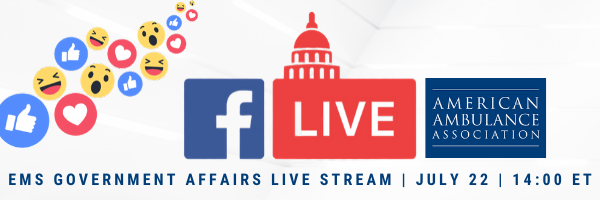EMS Narratives Columns
Below is the first in a series of monthly personal narratives from EMS leaders. If you would like to submit a column for consideration, please email hello@ambulance.org.
Written Friday, November 25, 2022 | By Ed Racht, MD
Happy Friday, and happy Thanksgiving weekend. I hope by now your blood sugar is slowly but surely heading back to baseline despite all the leftovers calling you from the fridge. Worth it though, right? My dad taught me long ago, “everything in moderation—even moderation.”
So, I want to tell you something tonight, especially because it is the Thanksgiving season. I’ve been thinking for a while about how to say this without sounding cliché, routine, robotic, or insincere. And then—as so often happens in life—I got a little help from a very unlikely encounter.
This past Saturday, my bestie, Heather, and I went to try a local diner for breakfast. This place has been around since air was invented. Cash only. Same tables and seats since the day they opened. Part Formica, part particle board countertops. None of the coffee cups match. Open only until 2:00PM and always closed on Sundays. The ham & cheese omelet is $7.99. Biscuits, bread, or hashbrowns only. Everyone that comes in knows everyone else. And it is packed all the time.
We chose a booth in the corner by the window because our server told us that was the warmest table she had available. She was right.
As we sat drinking our coffee in mismatched mugs, we both noticed an elderly man sitting by himself at the end of the counter. He had placed his walker against the ATM along the wall (cash only, remember?).
Then he slowly got up from his stool, grabbed that walker, and carefully wobbled his way to the restroom. It was one of those moments where we both watched and quietly prepared to jump up to help prevent what seemed like an inevitable fall. We didn’t want to offend him with an offer to help but didn’t want him taking a trip to ground either.
We looked across the table at each other and did that mutual raised eyebrow thingy. Ugh. “Warmest booth we have,” she said. Great.
A few minutes later, he slowly made his way back to his spot. But he went a few feet too far this time with the walker, making a beeline directly toward the warmest booth in the diner. He stopped for a minute (what the heck?) grabbed the handwritten check off our table and turned around, without saying a word, and made his way back to his seat. His walker made those sequential two inch turns.
Great. How do you tell an older man he has OUR check (and why did we come here again)?
“Excuse me?” We both said, eyebrows up again.
He turned to us and said, “I’ve got it.”
Wait. What?
He said, “I come up here every day for breakfast when they’re open. Twice a month, I like to buy somebody else’s breakfast. I’ve got it.”
Wow. We sat in stunned silence as this gentleman made his way back to the counter and sat down on his stool.
To make a long story short, we thanked him and struck up a small conversation with him. A few minutes in, he asked, “can I get closer?”
Of course.
So once again we went through the diner-walker challenge and he made his way over to the warmest booth in the restaurant and sat with us for the next hour. We talked about all sorts of things. His wife had been a nurse (mental health was her specialty). He told us about where they had lived and their adventures. He talked a little about his opinions of healthcare today (you can fill in those blanks).
At one point, he told me he lived in Texas and he’d always travel into Mexico to get his medications because they were so much cheaper than in the US. I asked him if he was nervous about going.
He laughed, and said, “I always went in the morning. Bad guys don’t get up early.”
Now, I’ve been in EMS for a few years and you know what? He’s right. Holy crud. Funny and spot-on relevant.
So, why am I telling you about Gary (his real name, by the way)? First, I need to cover a few more things to pull the meaning of this story together. Bear with me.
Fair warning. This next part doesn’t feel Thanksgivingy, but I’m going to argue that it’s at the very heart of a meaningful “thanks.”
Take a look at some of the toughest parts of our world right now:
- How can we ever understand recent senseless acts of violence—and how will we ever comfort our own who responded?
- What do we do about the fact that a recent survey shows that nine in 10 nurses believe the quality of patient care often suffers due to nursing shortages?
- And, by the way, the majority added that they feel guilty about taking a break because they think they must always be on call (55%).
- … resulting in half of the nurses polled admitting they have considered leaving the nursing profession altogether (50%).
- And how about this one? According to a AAA survey of 258 EMS organizations across the country, nearly a third of the workforce left their ambulance company after less than a year. Eleven percent left within the first three months!
- Did you know that the number of serious patient safety incidents reported to The Joint Commission jumped in 2021, reaching the highest annual level seen since the accrediting body started tracking them in 2005?
- And … In Minnesota, nearly 60% of the state’s EMTs and about 15% of Paramedics did not provide patient care in 2021. This suggests that they left the EMS workforce altogether.
I’ll stop there, because I think you get the gist. How (and why) do I go from a Gary story to this?
This is, without a doubt, the most challenging period of EMS and healthcare history that we have faced together. Ever.
It’s really, really hard right now. And it’s hard in a different way than we’ve ever faced. Clinically hard. Operationally hard. Financially hard. Culturally hard.
Which also means that it’s personally hard. Whether you are directly providing care to a patient or supporting all the complexities that make that interaction possible and effective, it’s hard on us. The facts above reflect exactly that.
Now, I’ve been in EMS for a year or two (insert big-eye emoji), and one of the most rewarding feelings on the planet is creating order out of someone else’s chaos. I honestly believe that people like you choose this profession and support this profession in large part to make other people’s lives better.
Our mission is among the purest and most important on the face of the earth. Just think about how many people enjoyed a Thanksgiving with the people they loved because someone years before fixed their distorted anatomy or disrupted physiology.
It’s easy to forget the massive good a profession, an organization, or an individual can do. Gary gave us a little gift. When I first saw him, I was certain we would end up having to help him. But instead, he helped us.
When we work hard to take care of our patients, our communities, each other, our organization and our profession—They. Take. Care. Of. Us.
So. When our workplace is supportive, people want to join us. When our partners are fun, we seek them out. When our medicine is strong and sound, the medical profession embraces us. When our operation is accountable, we grow, evolve, and thrive when the art and science changes. When we come together as a team, we become the model of effective care. And when all that happens, WE, as individuals, can help tackle all the tough stuff in the most effective way possible.
I’d love to have more people choose EMS as a profession. I’d love to see them seek out advancement and growth. I’d love to see the science evolve to support better outcomes in unplanned illness and injury. I’d love to see hospital metrics and EMS metrics get better, not languish. I’d love to help communities become safer. And I would absolutely love for every one of us individually to be a part of that. I promise. That’s the way we make things so much better.
So tonight, on this day after Thanksgiving, I want to tell you that I’m not just thankful for what you do, I’m also extremely grateful. My daughter taught me there’s a difference. The definition of thankful is “pleased and relieved.” The definition of grateful is “feeling or showing an appreciation of kindness and gratitude.” In that spirit, I wanted to share that I’m grateful for you and I’m grateful for EMS.
We need the best in one another right now. There are four legs in our Bench of EMS Strength:
- Taking care of ourselves
- Taking care of our partners
- Taking care of our patients
- Taking care of our organizations
There is plenty of hard stuff ahead, so let’s do this. We can sit in the warmest booth in the place. I’m so grateful for that.
So, that’s it from my World. Happy Friday, and happy Thanksgiving.
Ed





_2.png?width=250&height=220)






